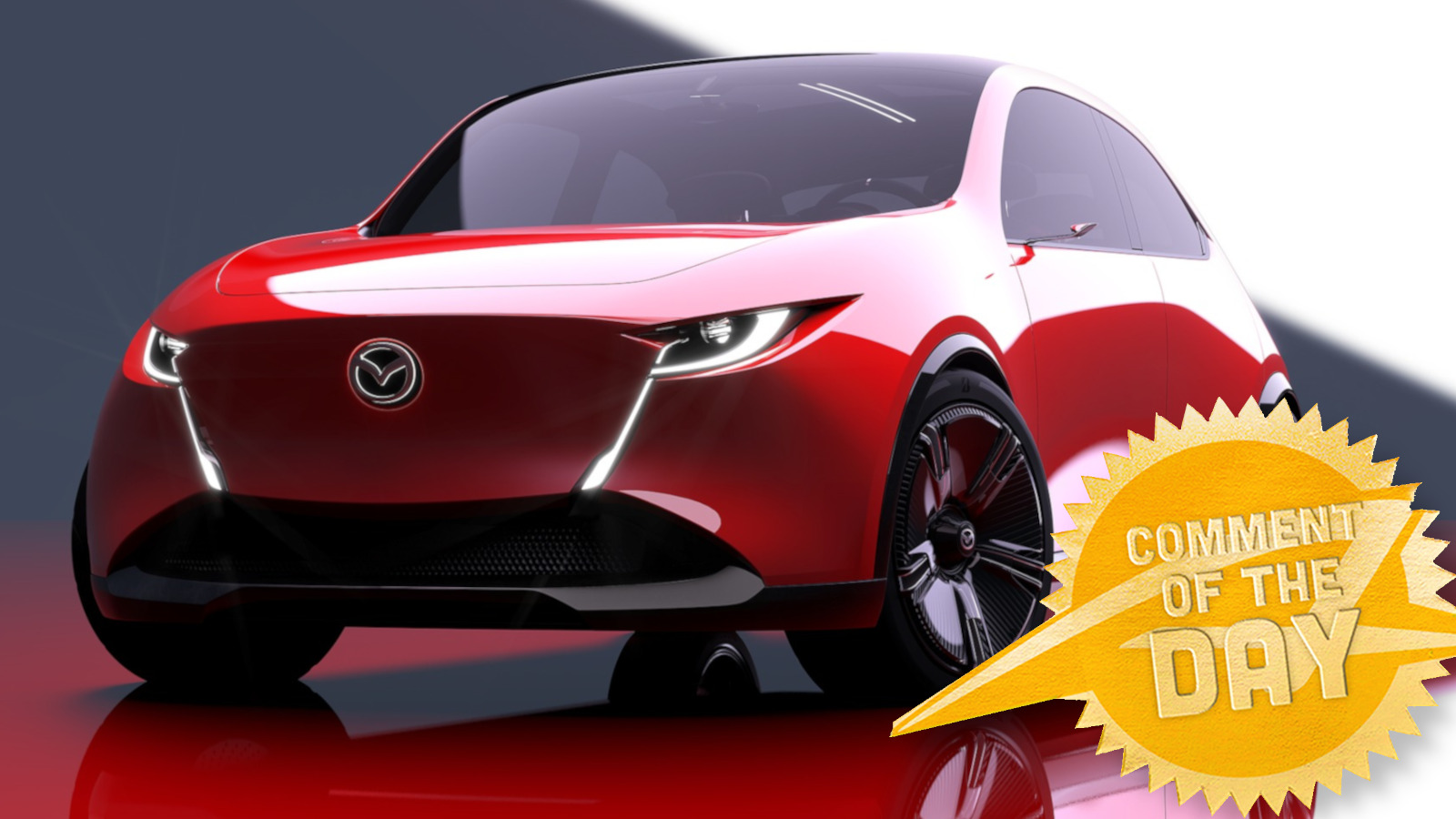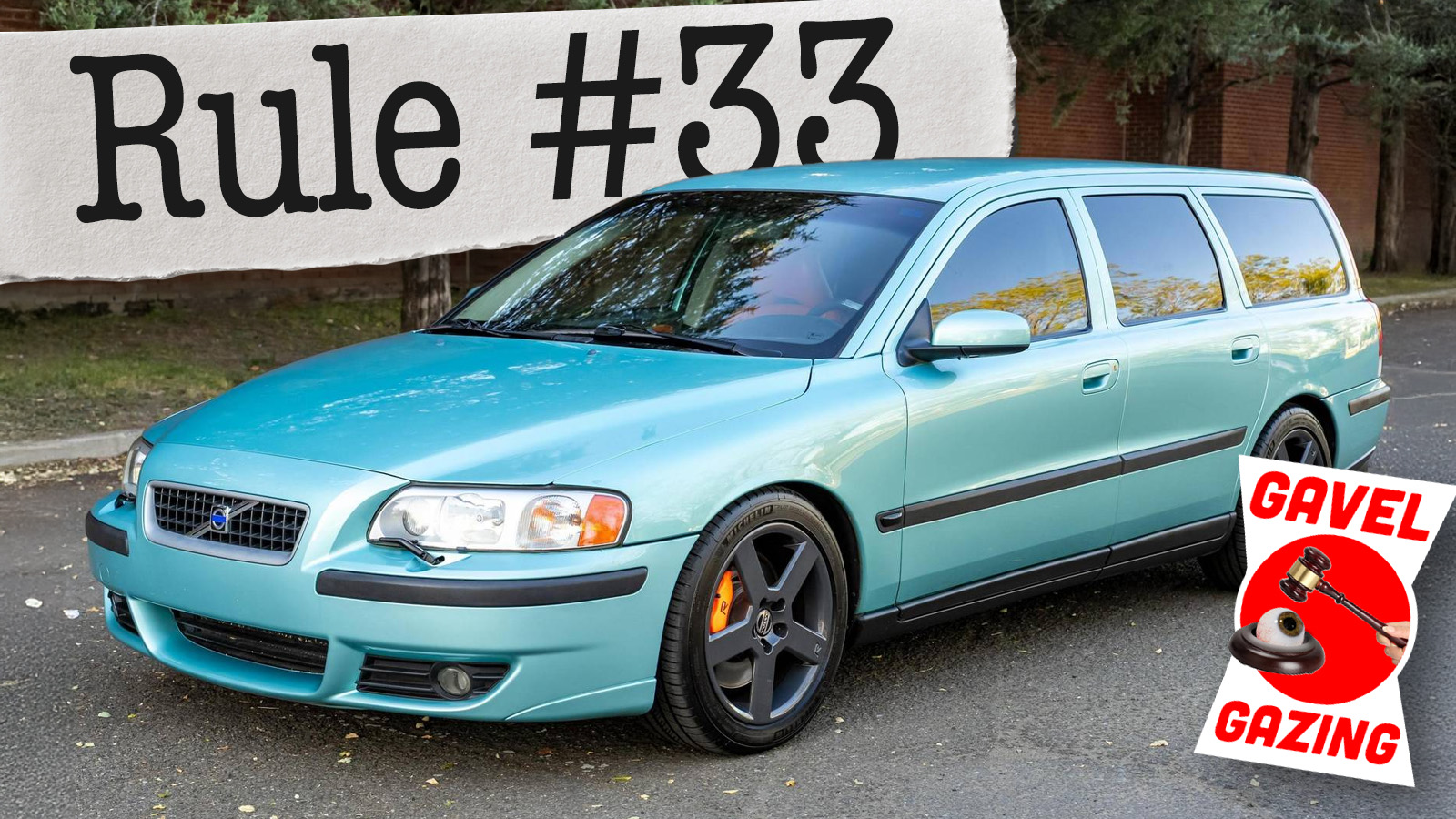Happy Friday, Autopians! For our end-of-the-week special, we’re going to check out two coupes from that dismal decade between the mid-1970s and the mid-1980s. But these aren’t just any old slowpoke Broughamed-out two-doors. They’re both something special.
Why more malaise era cars? Because yesterday’s Little Beige Corvette did so well. I get the feeling that a lot of you voted for it under duress, and that if the RX-8 had had just one more pedal on the floor, the outcome might have been different. But a win is a win.
For me, it’s the Corvette anyway, regardless of transmission. Wankel engines are fascinating, but like Communism or a Vince Neil solo record, they sound a lot better in theory than they actually work in practice. I might not pass up a chance at an earlier Mazda rotary, under the right circumstances, but I’ll leave the Renesis work to serious rotary fans.

Now then: The so-called “malaise era” was full of objectively terrible cars. No one is going to deny that. But one category of cars reigned supreme during this era, and it’s a category I know a lot of us miss – the personal luxury coupe. Sure, they were slow, and excessive, and sometimes a bit tacky, but there’s just something about the idea of a big, comfortable car that’s just for you and one very special passenger that’s really appealing.
But we’re not going to bother with your run-of-the-mill Cutlasses and Cordobas. Today, we’re looking at one personal luxury coupe that has been turned into a dragstrip hero, and another that takes the whole concept of personal luxury to its ridiculous, glorious conclusion. Here they are.
1981 Dodge Mirada drag car – $16,500

Engine/drivetrain: 390 cubic inch overhead valve V8, three-speed automatic, RWD
Location: Dinwiddie, VA
Odometer reading: unknown
Operational status: Runs 11 second quarter miles, but isn’t street-legal
The dawn of the 1980s was a bleak time for Chrysler. The old rear-wheel-drive platforms were showing their age, the company was reeling financially from poor sales and the Aspen/Volaré debacle, and Lee Iacocca’s infusion of new ideas and government cash hadn’t kicked in yet. But somehow, out of this era came one of my favorite Mopar two-door designs: the Dodge Mirada.

Chrysler had a rich drag-racing heritage, of course, with the famous Hemi engine basically dominating the entire scene for a couple of decades. Chrysler could barely afford to keep the lights on, let alone field factory racing teams during this time, but it did supply cars to some folks who could, like drag racing legend Paul Rossi. The seller claims that this ’81 Mirada was one of the cars provided by Chrysler to Rossi for “testing purposes,” and has a long history of quarter-mile successes to its name. Currently, it is powered by a stroked 390 cubic inch Chrysler LA V8 and an A904 Torqueflite automatic transmission, both of which are relatively new.

Since this car was raced in NHRA’s “Stock” class, it has a full stock Mirada interior, carpet and all. It all appears to have weathered the years at the drag strip pretty well, and those velour bucket seats still look mighty comfy. This car has been a race car since day one, and as such has no title, so it isn’t registered for the street. There may be some loophole that would allow you to put license plates on it – I assume it has a VIN – but as of now, you’ll have to trailer it to the strip.

Honestly, I love the idea of this car, and if it were me, I think I would try to get it registered for the street, so more people could appreciate it. The idea of a beige malaise-era luxobarge that can run 11s just makes me smile.
1979 Cadillac Seville Opera Coupe – $24,000

Engine/drivetrain: 350 cubic inch overhead valve V8, three-speed automatic, RWD
Location: Granada Hills, CA
Odometer reading: 26,000 miles
Operational status: I assume it runs and drives just fine
“Downsizing” was a new word in Detroit’s lexicon in the mid to late ’70s. American cars had grown to comically large proportions, and to meet stringent new fuel economy standards, some fat had to be trimmed. General Motors saw the writing on the wall early, and in 1975 did something that would have been unthinkable a decade eariler: introduced a mid-sized Cadillac. Traditionalists may have recoiled at the idea, but the Seville sold well, and became a popular subject for customizers and coachbuilders, including the Grandeur Motor Car Company of Florida, who turned a few hundred Sevilles into the car you see here: the Opera Coupe.

Take a stock Seville, eliminate the rear doors, move the entire cowl and windshield back to about where the B-pillar used to be, re-use the front doors, and presto, you’ve got an Opera Coupe. Fill in the now absurd length of the front fenders with a pair of faux spare tire carriers to complete that oh-so-trendy “neoclassical” feel. Mechanically, it’s still a bone-stock Seville, with a fuel-injected Oldsmobile 350 V8 and Turbo-Hydramatic transmission – only now it’s got Cruella DeVil proportions.

It goes without saying that this new and “improved” Seville is now a two-seater. The entire front half of the stock Seville interior is simply moved rearward, to almost where the rear seat used to be. One can only imagine what it’s like trying to park a car from the back seat, with all that excess length sticking out in front. At least it looks like a comfortable place to be.

This car has a scant 26,000 miles on its odometer, and has recently been repainted. It looks – well, I won’t say “good” – but it is nice and shiny. The only other thing the seller says is that it’s “in excellent condition,” which I assume means it runs fine. It’s a pretty bulletproof drivetrain, as late ’70s cars go.
So there they are, the two extremes of what can be done with a personal luxury coupe. Go fast, or get weird; the choice is yours. You’ve got all weekend to think about it. See you Monday!
(Image credits: Craigslist sellers)








That Seville just looks wrong,which is a shame because I really like the look of them when stock. The Mirada would be awesome though.